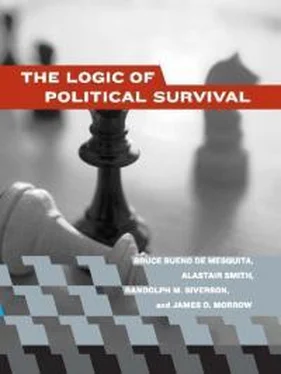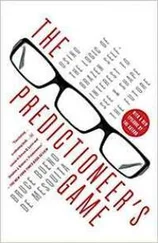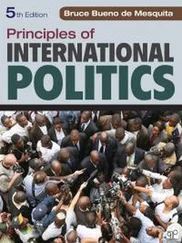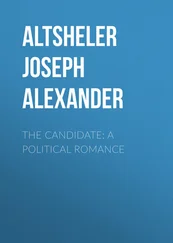Antipollution policies have a public-goods character to them in that everyone breathes the same air or drinks the same water. Yet antipollution policies also have a private-goods side. Some businesses or industries bear a heavier burden in literally cleaning up their act than do others. This differential burden could be used as a political instrument to punish firms or industries that are not supporters of the incumbent while benefiting those that are. Still, many public policies can be distinguished from pork barrel legislation, patronage, or simple theft of the public treasure. In our model we think of allocations between public and private goods either as readily discerned and distinguished or as the selection of goods with varying mixes of public and private components. By attending to allocation decisions involving public and private goods, we hope to show a number of interesting and surprising political consequences that follow from the basic desire of leaders to retain their offices.
Easy Answers, Inadequate Answers
Many answers come naturally to mind to explain why leaders perform differently in different political systems. Given the availability of common answers, why have we chosen a different approach? To answer this, we consider some accounts of the variations in political life that seem to advantage dictators and disadvantage democrats.
Autocrats often are oppressors. They sometimes stay in power because they do not hesitate to repress opposition and oppress their citizens. True though this is, it cannot explain the significant survival advantages of dictators nor the policy advantages of democrats. This is so because oppression is itself a phenomenon requiring explanation. When is oppression an effective strategy to deter challenges? When do leaders have the incentive to do anything to hold onto power? Where do leaders find those willing to carry out oppressive measures? How does oppression intimidate challengers? The effectiveness of oppression and the reasons autocrats last so long can be traced to the same causes. Oppression is a byproduct of the political arrangements that ensure longevity. We address this issue in chapter 8.
Before accepting oppression as the explanation for the political viability of dictators, we must confront difficult problems. Why can dictators marshal the support of those who control their society’s guns while democrats cannot? If control over guns is all it takes to stay in office, why are there civilian dictators? Such civilian leaders as Joseph Stalin (USSR, 26 Years), Adolf Hitler (Germany, 12 years), Francis Joseph (Austria, 67 years), Wangchuck Jigme (Bhutan, 26 years), Tsendenbal (Mongolia, 30 years), or Mobutu Sese Seko (Zaire, 32 years) had no special military skills. Why are military leaders loyal to them rather than setting themselves up as rivals for power? Why can’t democrats rely on the loyalty of the military and just stay on after their term in office expires? Some apparently elected leaders—Hitler comes to mind—do. Having been elected to government, he maneuvered himself into the chancellorship and used the advantages of office to secure the loyalty of the military (in part by assassinating rivals in the Sturmabteilung or storm troops), and he then ended democracy.
Why, if oppression is the solution to political longevity, are there long-lasting autocrats who avoid extreme oppressiveness and who, instead, provide peace and prosperity? Lee Kwan Yew held power in Singapore for twenty-six years before voluntarily stepping aside. His rule was certainly not democratic and it did engage in subtle forms of oppression, but it just as certainly never rivaled the oppressiveness common in Cambodia, China, Uganda, the Soviet Union, or so many other countries.
One ready alternative to oppression as an explanation of autocratic longevity is an appeal to civic-mindedness. Good fortune, serendipity, or the “right” political culture may be the reason that some societies are ruled by civic-minded leaders and others by ogres. Surely some people are more civic-minded than others. Perhaps democracies have the good fortune of having a disproportionate share of the world’s civic-minded leaders or of honest citizens. A pleasant thought but almost certainly false. If civic-mindedness is defined by what leaders do, it appears that democrats are more civic-minded than autocrats. However, we will see that the differences in the performance of political leaders can be explained without any appeal to civic-mindedness or national character or culture. In doing so, we will suggest why Leopold II, as king of the Belgians, was at the forefront of promoting economic growth, educational reform, and other successful policies at home in the emerging Belgian democracy while, as the personal owner of the Congo, he simultaneously promoted unspeakable oppression and exploitation in his dictatorship. We will suggest that he had no change of heart, no change in culture, no change in civic-mindedness; he did have a change in fundamental political realities, and those changes altered his behavior.
Another alternative explanation for the manifest differences between democratic and nondemocratic rule may be the existence of competitive elections. Electoral politics certainly are closely associated with institutional arrangements that ensure a large winning coalition, but elections are neither necessary nor sufficient to account for differences in political survival or in fundamental allocation decisions. We can certainly point to examples of electoral systems that nevertheless encourage rent-seeking behavior. India unfortunately fits this bill, as did Mexico at least until 2000 or Tammany Hall in the late nineteenth and early twentieth centuries. Rigged electoral systems, of course, encourage universal suffrage and often permit rival candidates. They just cheat on how votes are counted or count honestly but stifle competent rivals. The presence of elections is not sufficient to explain political choices in those societies. They have a large selectorate, as we will see, but a small coalition. On the other side of the ledger, we must explain the successful performance of Hong Kong prior to its return to China. For most of Hong Kong’s modern history it was a crown colony of Great Britain. There were no elections, yet its government produced high-quality public policy and extremely low levels of corruption or other forms of private-goods, rent-seeking behavior. Singapore has also provided substantial public benefits and relatively few private goods, yet for much of its history it has been subject to what nominally might be called autocratic rule. The absence or presence of elections is inadequate to explain these variations.
Then, also, we should recognize that single-member district parliamentary political systems, presidential systems, and proportional-representation or multiple-member district systems all engage in competitive electoral politics, yet they perform differently in their provision of public and private goods and in the longevity in office of their leaders (Alesina and Rosenthal 1995; Knack and Keefer 1995; Cox 1997; Persson and Tabellini 1999). The selectorate theory offers an account that is consistent with these examples and others but that is also generally consistent with the idea that elections are usually emblematic of—though not determinative of—a regime that produces relatively few private goods and many public goods.
An Incomplete Theory of Institutional Political Laws
We begin with a simple, skeletal theory—one without bureaucrats, without subunits of the polity, without explicit political parties or ideology—in the hope that others will find it of sufficient interest to participate in efforts to elaborate and build on it. This is a step along the way, not an end. It is a step that relies on and builds on much previous political-economy research. We illustrate the broad applicability of the generalizations we deduce by combining three modes of analysis: formal, deductive logic grounded in game theory; statistical analysis of propositions derived from the assumptions behind our theory; and flesh-and-bone case histories designed to illuminate, probe, and illustrate the workings of the theory. The statistical analysis will encompass events spread over the past 200 years. The case histories are drawn from ancient Greece and Rome, as well as from medieval, Renaissance, and modern events. The use of formal modeling is to ensure logical consistency and to help tease out nonobvious implications that can be deduced from our assumptions. We will call attention to particularly surprising deductions and to novel hypotheses generated by the theory, as well as to its reiteration of things already known empirically about politics. We are encouraged by David Hume’s observation regarding political institutions that “so great is the force of laws and of particular forms of government, and so little dependence have they on the humors and tempers of men, that consequences almost as general and certain may sometimes be deduced from them as any which the mathematical sciences afford us” (Hume [1742] 1985, chap. iii, p. 15).
Читать дальше












